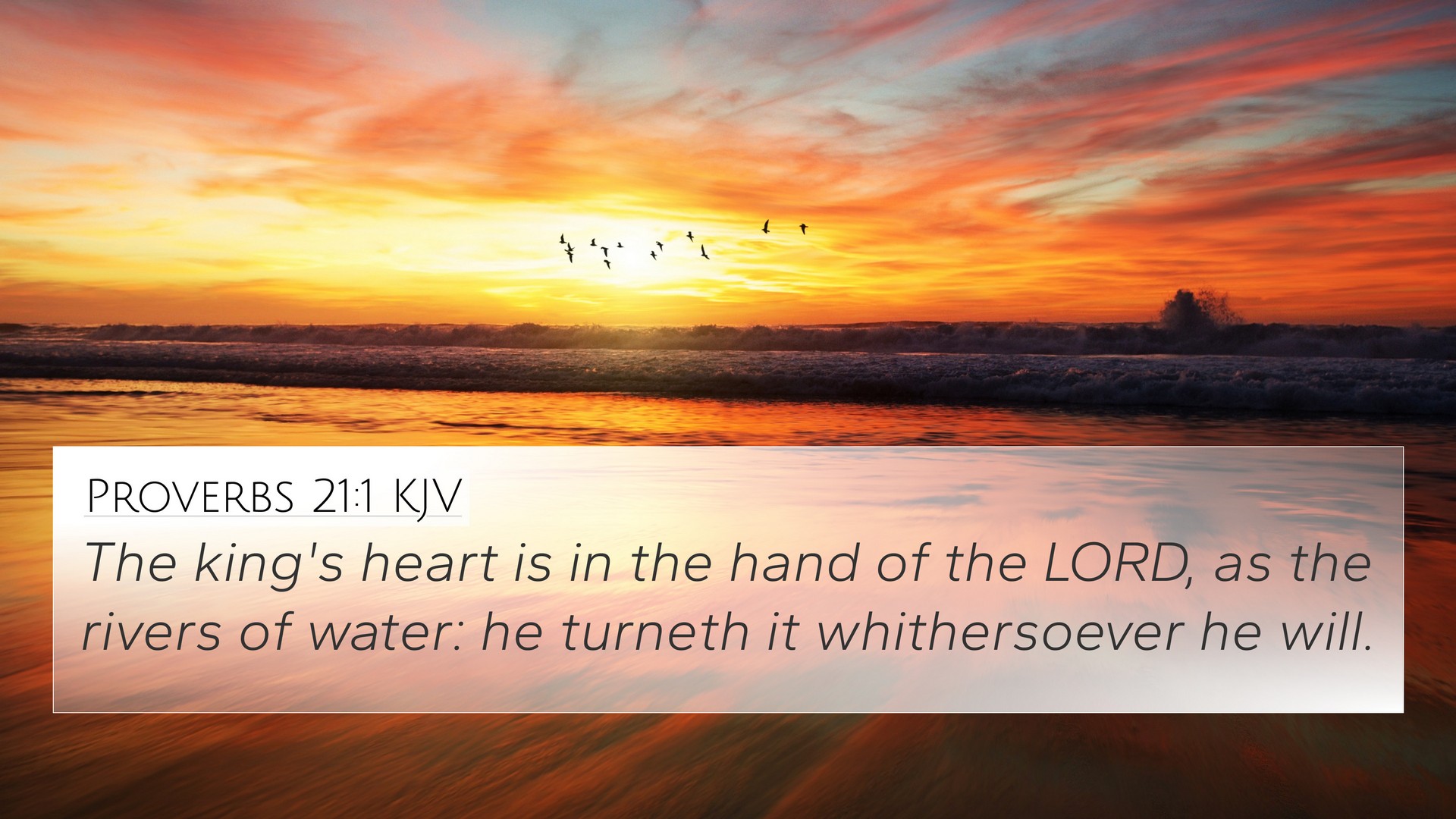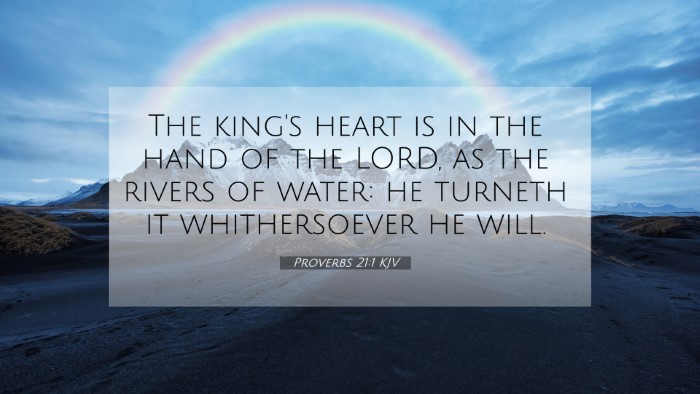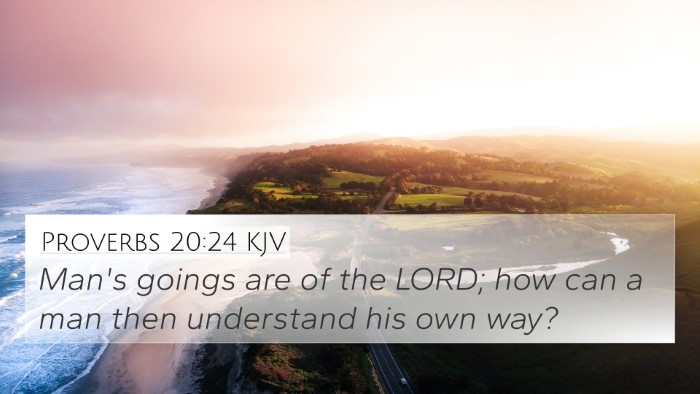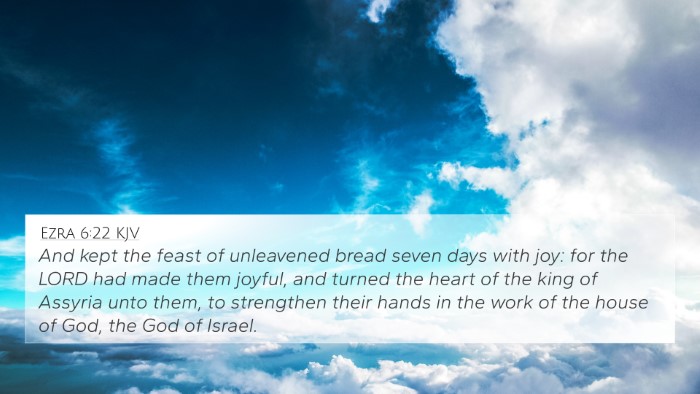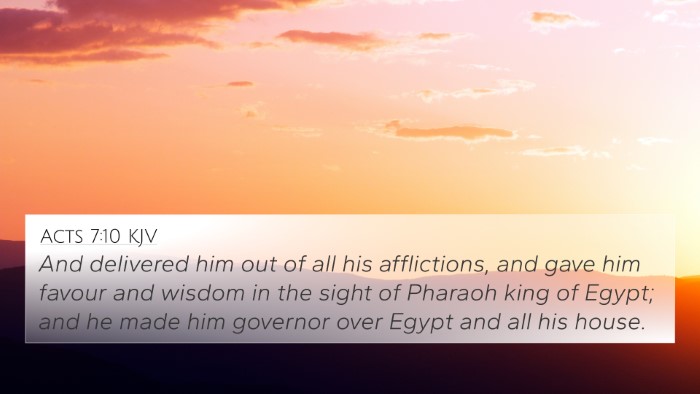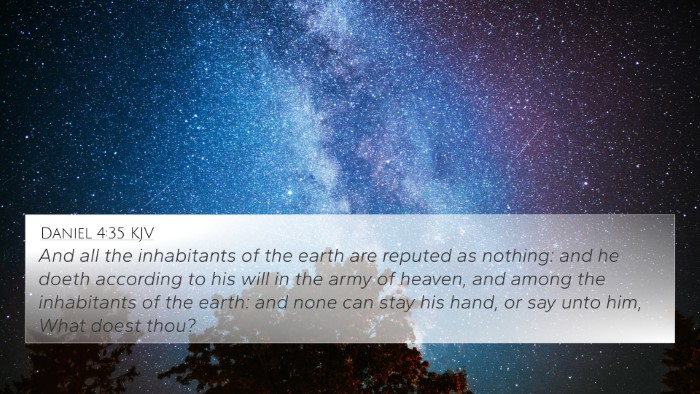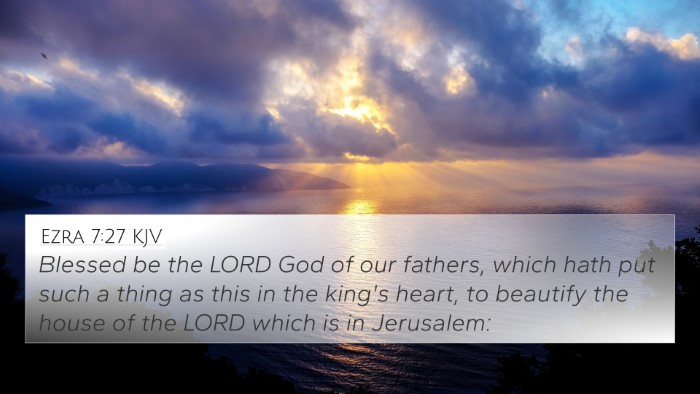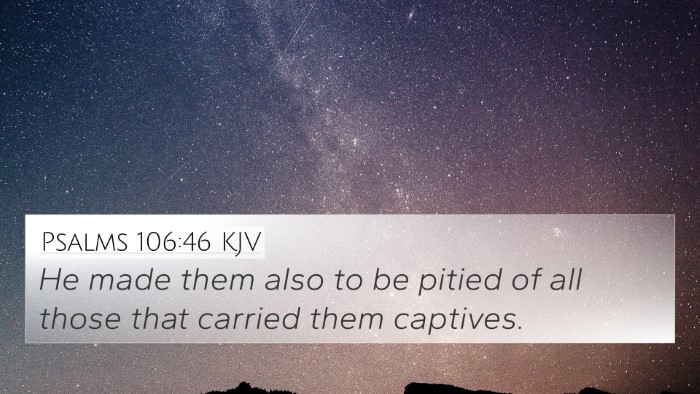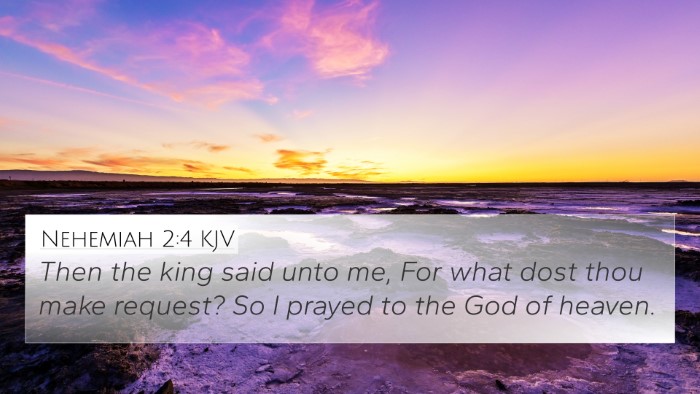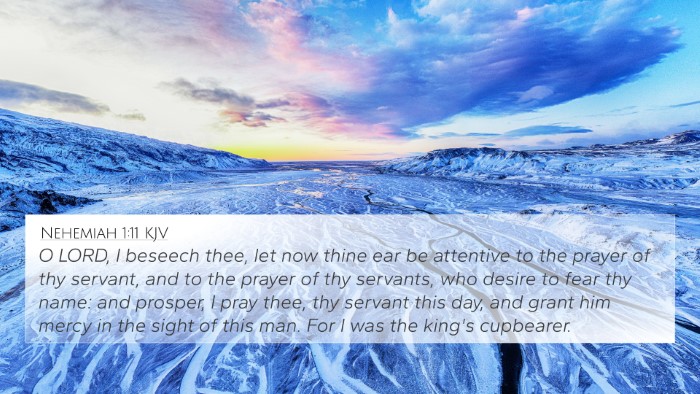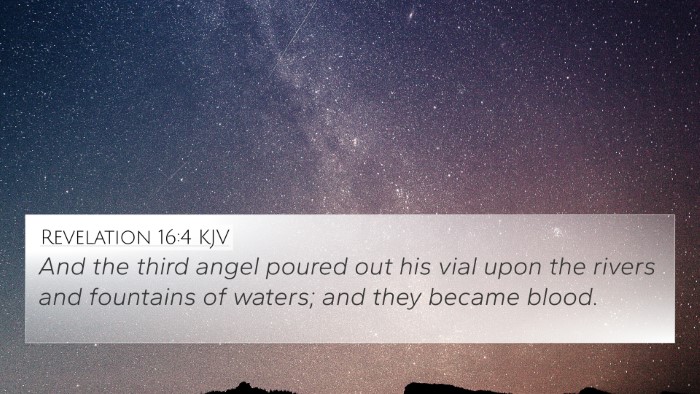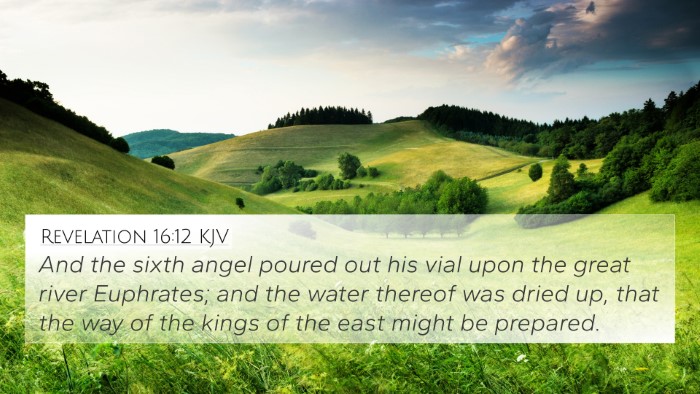Understanding Proverbs 21:1
Proverbs 21:1 (KJV) states: "The king's heart is in the hand of the LORD, as the rivers of water: he turneth it whithersoever he will." This verse highlights the sovereignty of God over human affairs, particularly in the hearts of those in authority.
Summary of Insights
This verse, rich in metaphor, illustrates how God influences leaders, akin to how a shepherd guides his flock. The imagery of rivers implies that God's control is fluid and adaptable, directing rulers toward His divine purpose.
Commentary Insights
- Matthew Henry: Henry emphasizes that God possesses ultimate authority over hearts, especially those of kings. He suggests that it brings comfort to believers that God governs not only the righteous but also the rulers who may seem uncontrollable.
- Albert Barnes: Barnes notes that even the most powerful human beings are subject to God's will. He argues that when God desires, He can transform a king's decisions towards righteousness, guiding them in paths of justice and mercy.
- Adam Clarke: Clarke interprets the verse by stressing God's omnipotent ability to direct human thoughts and intentions. His commentary suggests it is a reassurance for those under earthly authority, urging trust in God’s governance.
Bible Verse Cross-References
Studying Proverbs 21:1 can be enriched through the following cross-references:
- Jeremiah 10:23: "O LORD, I know that the way of man is not in himself: it is not in man that walketh to direct his steps." This verse underscores the idea that humanity lacks the ability to govern itself without divine guidance.
- Psalm 33:10-11: "The LORD bringeth the counsel of the heathen to naught: he maketh the devices of the people of none effect. The counsel of the LORD standeth for ever, the thoughts of his heart to all generations." This passage reinforces the theme of God’s sovereignty over human plans.
- Daniel 2:21: "And he changeth the times and the seasons: he removeth kings, and setteth up kings." This reflects God's control over leadership and His ability to change circumstances in accordance with His will.
- Proverbs 16:1: "The preparations of the heart in man, and the answer of the tongue, is from the LORD." This verse links the internal dispositions of individuals to God’s sovereignty, showing divine influence in even the smallest responses.
- Romans 13:1: "Let every soul be subject unto the higher powers. For there is no power but of God: the powers that be are ordained of God." This New Testament verse affirms that all authority derives from God, reiterating the principle found in Proverbs 21:1.
- Isaiah 40:15: "Behold, the nations are as a drop of a bucket, and are counted as the small dust of the balance: behold, he taketh up the isles as a very little thing." This illustrates God's supreme authority over nations and rulers.
- Job 12:23: "He increaseth the nations, and destroyeth them: he enlargeth the nations, and straiteneth them again." This verse highlights God's control over the rise and fall of nations, paralleling the theme of leadership in Proverbs 21:1.
- 1 Samuel 10:24: "And Samuel said to all the people, See ye him whom the LORD hath chosen, that there is none like him among all the people? And all the people shouted, and said, God save the king." This verse reflects divine selection in authority, echoing the governing hand of God.
- Acts 4:26-28: "The kings of the earth stood up, and the rulers were gathered together against the Lord, and against his Christ." This New Testament reference highlights the continuing pattern of God's governance over earthly rulers.
- Proverbs 19:21: "There are many devices in a man's heart; nevertheless, the counsel of the LORD, that shall stand." This emphasizes that despite human intentions, it is God's will that prevails in all matters.
Thematic Connections
Proverbs 21:1 forms a bridge between human authority and divine sovereignty. The connections between Bible verses illustrate a consistent theme throughout Scripture regarding God's control over leaders and nations.
Similarities and Inter-Biblical Dialogue
Across both the Old and New Testaments, there is a continuous dialogue about the nature of authority:
- In the Old Testament, leaders are often portrayed as appointed by God to fulfill His purposes, seen in passages like 1 Chronicles 29:11-12 where God is recognized as the true sovereign.
- The New Testament emphasizes submission to authority while recognizing God's ultimate sovereignty, as seen in Philippians 2:10-11, where every knee bows to Christ's authority.
Effective Use of Bible Cross-References
To fully grasp the complexities of Proverbs 21:1, using tools for Bible cross-referencing is invaluable. Various resources enable a systematic approach to understanding connections between Bible verses:
- Bible Concordance: A helpful tool to find where similar themes or words appear across Scripture.
- Bible Cross-Reference Guide: Guides that systematically link verses throughout the Bible, showcasing thematic tie-ins.
- Cross-Reference Bible Study: A method focusing on connecting verses for deeper theological understanding while considering context.
- Bible Reference Resources: Tools and textbooks that aid in connecting scripture, enhancing knowledge of thematic connections.
- Comprehensive Bible Cross-Reference Materials: Extensive study resources that compile connections and thematic alignments for detailed study.
Concluding Thoughts
Proverbs 21:1 serves as a profound reminder of God's omnipotence in directing the hearts of kings and leaders. For believers, this calls for prayerful reliance on God's sovereignty, especially regarding those in positions of power. The rich tapestry of related verses offers a deeper understanding of this profound biblical truth, providing a framework for exploring the dynamic interplay between divine sovereignty and human authority.
